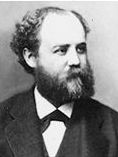CALC. OSTR.- General symptoms agreeing, it must be remembered when, in child or adult, the abdominal pains are relieved by cold applications. This exceptional symptom of Lime is recorded in Raue’s Pathology, and may be inferred from the provings. In Allen, Vol., II P. 365, we read; “Frequent attacks of colic after the disappearance of a severe coryza that had lasted two days, with great weariness and sickly look of the face, lasting several days, and then suddenly and completely relieved by bathing in cold water.”
For Typhlitis, which frequently leads to Peritonitis; Belladonna, Lachesis, Mercurius, Mercurius Cor., Rhus Tox., Nux Vom., Ginseng. Hepar, Opium, Plumbum, Rhamn. Frangula, etc.
The tympany which so annoys the patient is a very dangerous symptom when occurring late in the disease. For this compare: Opium, Lycopodium, Kali.C., Terebintha, Rhus Tox., Colchicum, Carbo Veg., Phosphorus, Cinchona, Veratrum Alb. and Cocculus.
RAPHANUS produces distended abdomen; no emission of flatus either upwards or downwards. Dr. Bell’s case confirming this symptom is suggestive and should lead us to a careful study of the drug.

